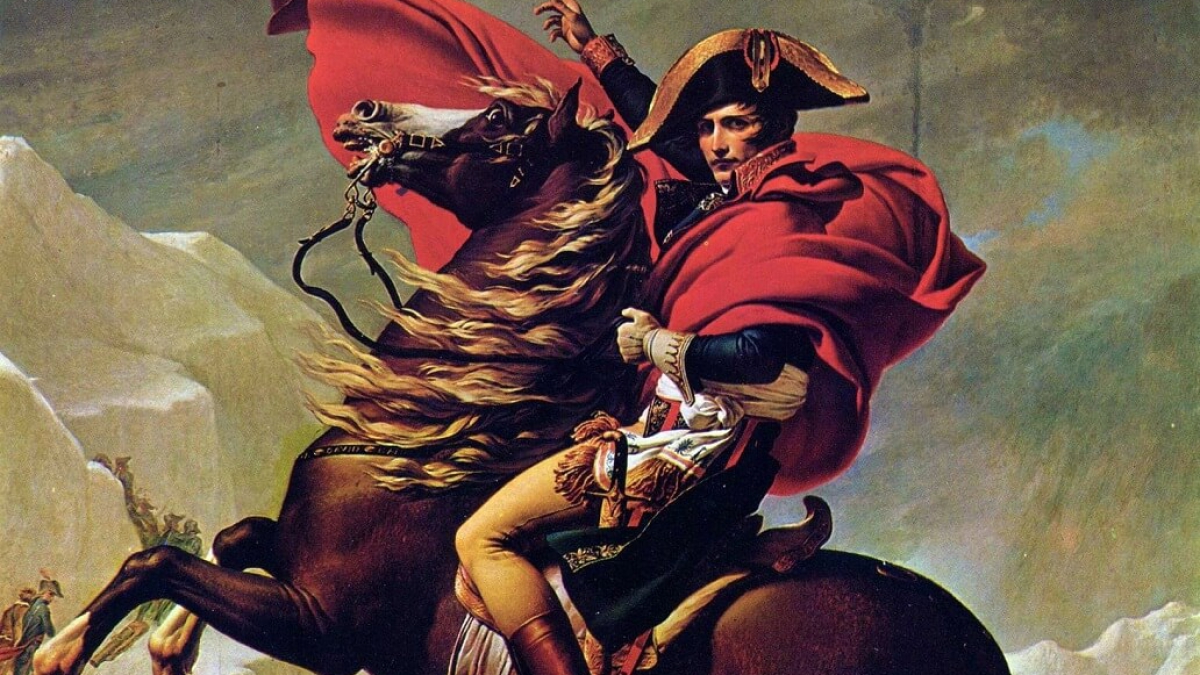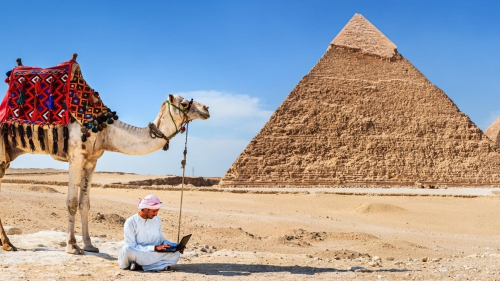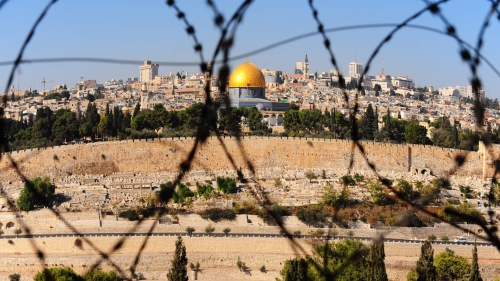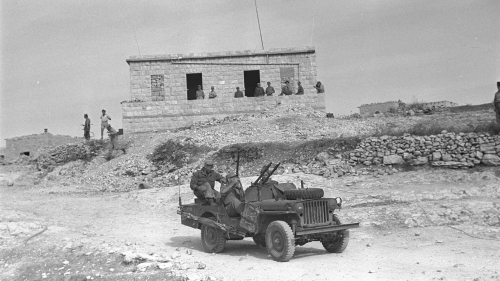Mission to Civilize and Muslims

As a worldwide crusade, the mission to civilize meant to conquer and control weaker, plus rich-in-resources, countries, to bring a country under the yoke of slanted laws, to educate and indoctrinate the population of a country, and to standardize and also regulate behavior. Put differently, the civilization mission meant the imposition of westernization and modernization schemes, consistent with the prescribed standards and laws of the conquerors. To civilize likewise denoted to think and behave as specified, to become less of a threat and predictable, and to be as much open, accessible and institutionalized as possible - at all levels of the personal and collective existence - in order to facilitate nation-wide control and discipline. These arrangements were achieved within the framework of the newly created (imported) systems and institutions and were sustained by means of the workforce that was a mixture of colonizing entities and local collaborators.
In the process, the “barbaric” and “backward” traditions were discounted and the imported “civilized” novelties were put on a pedestal. People were pulled out from the “inhibiting” alcoves of their private selves, homes, families, and strictly regulated interpersonal relations, to the utopia of the exposure of mechanical work-life, formal education, commuting, lax socialization and entertainment. All this was done in the name of the alleged freshly found freedom, discovered wisdom, and of people’s alleged cravings for self-expression and self-fulfillment. But freedom stood for chaos and moral decadence, wisdom for skepticism and myopia, and fervor for avarice.
Which is to say that the civilization processes targeted utter capitulation, acquiescence and the relinquishment of identities and moral compasses. They signified a belated - albeit fake – renaissance (nations’ rebirths), and a march into the unknown. It goes without saying that a small amount of measured material progress a “civilized” nation acquired, was small consolation for what it had lost forever. Though it may seem punitive, the transaction was akin to selling a national soul – and the souls of people – to the devil.
In a nutshell, just as the blueprint of the 18th century Britain demonstrated, pertaining to the struggles against the Scottish Highlanders – a blueprint that was later perfected and internationalized especially by Britain and France in the course of their empire-building campaigns, and which combined the rule of law, socio-economic development and military terror – “civilization” was the historical process that paved the way for the expansion of capitalist relations which, in Europe, no less than in the colonies, required the destruction of the aboriginal cultures. “Thus, in Europe as well, ‘civilization’ was not a vehicle for the transmission of tradition, but the end of tradition; not the guarantor of the cultural ‘heritage’, but its destroyer; not the expansion of liberties, but their restriction; above all, it was not the expression of a European/Western ethos, but the project of a limited elite, which thousands resisted, arms in hand” (Silvia Federici, ed., Enduring Western Civilization).
Of those “others” who were targeted by the crusade of the civilization mission were Muslims and the Muslim world. Muslims, as a matter of fact, topped the list of potential clients, on account of Muslim countries’ diversity, strategic geographical locations, wealth, and extensive exposure to the dynamics of history-making. Like everybody else non-occidental, Muslims, too, were looked upon as backward barbarians. Due to the existence of Islam and culture as well as civilization produced by the former, Muslims were additionally regarded as fanatics and deviated villains. That led to the construction of an interesting brand of Muslim primitiveness and barbarity, which in turn called for a unique and highly advanced mode of the civilizing project.
Prophet Isma’il (Ishmael) in the Bible
The first boost was found in the content of the Bible where Prophet Isma’il (Ishmael) - the father of Arabs and, in a roundabout way, of all Muslims - is depicted in not-so-favourable terms. It is said about him that “he shall be a wild ass of a man, with his hand against everyone, and everyone’s hand against him, and he shall live at odds with all his kin” (Genesis, 16:12).
The commentary of this verse, according to Joseph Benson, is that Ishmael will be “rude, and bold, and fearing no man; untamed, intractable, living at large, and impatient of service and restraint.” His sin was that his hand was against everyone, and his punishment was that everyone’s hand was against him. As far as Ishmael himself and his tumultuous life destiny were concerned, “those that have turbulent spirits, have commonly troublesome lives: they that are provoking and injurious to others, must expect to be repaid in their own coin.”
However, Ishmael’s personal rudeness, ferociousness and propensity for violence were only one side of the story. The Bible prophesied about his progeny (his seed) as well, who were Arabs and, by extension, Muslims, hence “Ishmaelites” as one of the early appellations for Muslims in the West. Accordingly, just like their forefather Ishmael, Arabs (Muslims as Ishmaelites) were destined to become symbols of rudeness, lawlessness and viciousness. So widespread and powerful was the idea that in the English language the word “Ishmael” came to denote “castaway”, “outlaw”, “pariah”, “reject” and “persona non grata”.
Thus the stage was set for Ishmael’s and his seed’s perennial aberration and unorthodoxy. This proved an insurmountable obstacle in the eyes of the world whenever the Arab and Muslim world was intended to be “normalized” and brought to the mainstream of international affairs. In the ages of civilization, modernization and globalization Arabs-cum-Muslims confirmed time and again that they are hard to deal with. They are almost incompatible, yet virtually uncivilizable. Therefore, their extraordinary case demanded extraordinary measures. The wildness, rudeness and disorderliness of Ishmaelites in their role as “wild ass of men” are contrasted with the civility and obedience of the Israelites as implied in one of their prophets’ description of them as “sheep men” (Ezekiel, 36:37) (Pulpit Bible Commentary). The latter status is antithetical to the former, thereby setting the tone for the justification and manners of a civilizing mission intended for Muslims.
Joseph Benson further elaborated in his five-volume commentary of the Bible: “But this prediction chiefly respects the seed of Ishmael, who, it is here foretold, should be wild, free men, like wild asses, mischievous to all around them, and extremely numerous. Such they have been for almost four thousand years; infamous for theft, pillage, robbery, revenge, and murder. ‘It hath, therefore,’ as Mr. Brown justly observes, ‘been the continued and common interest of mankind to extirpate them from the earth. But though almost every noted conqueror who hath appeared in the world, whether Persian, Grecian, Roman, Tartar, or Turkish, hath pushed his conquests to their borders, or even beyond them, into Egypt or Arabia Felix, not one hath ever been able to subdue these Ishmaelites, or deprive them of their freedom.’”
John of Damascus
The first person who solemnized this reputation of Muslims and authorized its establishment as part of the Christian convention was John of Damascus (d. 749). Briefly, John was a Christian monk, priest and scholar. He was born and educated in Damascus, the center of the Umayyad establishment. He belonged to a prominent Damascene Christian family.
In Damascus, John was employed as a civil servant, just as his father Sarjun and grandfather Mansur had been before him. He most probably occupied a high position as a tax official. This famous Christian family served the Islamic government during the first two exemplary generations of Islam: sahabah (companions) and tabi’un (followers or successors). After some time, however, perhaps in 706, John left his governmental post and the city of Damascus to become a priest and monk at a monastery near Jerusalem.
John might have been the first Christian who publically christened Muslims not only as Ishmaelites but also Saracens. In any case, he certainly should be credited with the spread and propagation of the two designations. Afterward, the names were used interchangeably for centuries. While the meaning of the name “Ishmaelites” has been explained earlier, the meaning of the name “Saracens” is as disagreeable.
As per an account of John himself in his book on heresies, the word “Saracens” is derived from Sarras kenoi, or destitute of Sarah (Prophet Ibrahim’s first wife), because of what Hajar or Agar (Prophet Ibrahim’s second wife) said to the angel: “Sarah hath sent me away destitute (empty).”
However, some disputed this meaning and claimed that the Arabic word “sharqiyyun”, which means “Easterners” (people of the Orient, as part of “others”), is the origin of “Saracens”. Yet others believe – like Irfan Shahid who at the same time rejected the possibility of “Saracens” meaning “Easterners”, for it was too early for such an advanced terminology to be in circulation at the conclusion of the 7th and the beginning of the 8th centuries – that the designation “Saracens” is derived from the Arabic words “sariqa” and “sariq” which mean “to steal” and “thief” respectively. In that case, “Saracens” would mean “thieves”, “raiders” and “plunderers”, supplementing the wrapped meanings of “Ishmaelites” (Irfan Shahid, Rome and the Arabs).
That this was an intended slander against Muslims testifies the fact that Anastasius of Sinai (died after 700), a Christian scholar, priest and monk, referred to first Muslims as Arabs. The man was one of John’s sources for his own works. And inasmuch as John chose to refer to Muslims as Ishmaelites and Saracens, rather than Arabs as one of his references had done, only goes to show the ungodly intents of John. (Peter Schadler, John of Damascus and Islam).
In his two works: “Heresies” as part of “The Fountain of Knowledge or Wisdom” (wherein there is a section dedicated to the “Heresy of Ishmaelites”) and “Disputation between a Christian and a Saracen”, John attempted to establish the case of Muslims as one of primitive heathens, pagans and renegades. To him, Islam was not just heresy, but the climax of all heresies, and of all evil. Islam was a mere superstition and a form of deviation. It was a forerunner of the Antichrist. Prophet Muhammad was a false prophet and a liar; he was adulterous, a charlatan and a sexual maniac. The Qur’an was awash with follies, lies, and obscenities. Many of its accounts were “foolish tales worthy of laughter.”
With all this, John insinuated that the peril of Islam and Muslims should be done away with as soon as possible, above all if the speed of the spread of Islam across the world was taken into consideration. Muslims’ deviated religious beliefs should be corrected and directed to the right path of Christianity, and their lives infused with a sense of normalcy. They should be turned into conformists and “moderates”. No wonder that in John and his approach the ideological fathers of radical anti-Islamic polemics in Christendom saw a pattern to follow. Even the subsequent Islamophobes drew inspiration from the same intellectual spring; as did the proponents of the civilization project in the Muslim world. The latter was confident that the civilizational proselytization would succeed where the military crusades and those of peaceful Christianization have failed.
Riccoldo da Monte di Croce
Along the same lines and in the mold of John of Damascus’ legacy were the contributions of Riccoldo da Monte di Croce (d. 1320), an Italian Christian missionary and apologist, whose hostile theological polemics against Islam and Muslims was seminal in the literature of medieval Christian polemics, and who played a role in nuancing the Muslim-Christian relations of the day.
Riccoldo’s instance is peculiar because he was a Christian pilgrim in the Muslim midst; he learned Arabic and studied Islamic texts right in the Muslim institutions of learning and with the help of Muslim teachers. His knowledge and experiences were first-hand, prompting him to enrich his descriptions of and suggestions concerning Muslims. He did all this in his “Letters on the Fall of Acre”, “Against the Laws of the Saracens” and “The Book of Pilgrimage.”
While condemning, polemicizing against and maligning Islam and Muslims, Riccoldo was unusually aggressive and vulgar, to the point that every honest Christian should wonder if such an undignified demeanor befitted an exemplary “witness of Christ and his preacher” as Riccoldo claimed to have been.
Nonetheless, noteworthy is the expansion of the accusations against Muslims and the enrichment of the vocabulary employed. Now for the first time the socio-political and cultural dimensions - in addition to those pertaining to the spiritual, legislative and ethical sides of Islam - are addressed. The charges and their language were loaded with ethnographic and anthropological nuances. In such manner, Riccoldo unconsciously cleared a path for a future mission to acculturate and civilize Muslims.
Riccoldo was a “son” of the Crusades, at once as a tradition and a thought pattern. Just like the age and the generations which lived through it, Riccoldo’s personality too was a mixture of religious zeal, idealism and pride. Everything seemed to be excessive and exuberant. Such was a time when interreligious – in particular Muslim-Christian – relations were increasingly becoming intimate, direct and reciprocal. That was a novel occurrence at the global stage.
To most Christians, Islam was a false religion, a form of heresy, a perfidy and a scourge; Prophet Muhammad was a devil, an impostor, the beast of Apocalypse and the destroyer of Christ and his kingdom; Muslims, accordingly, were evil, murderers, adulterers, plunderers, bloodthirsty barbarians and bigots.
Thus, the devil of Islam and all forms of Islamic ultimate wickedness and immorality had to be eradicated, once and for all and no matter what it takes. Anything was tolerable in the process, for the noble ends easily justified the somewhat debatable means. The struggle was holy and participating in it a sign of authentic faith and piety. It was a Christian “jihad” (holy war), so to speak.
Moreover, in harmony with the quintessence of the civilization mission, Riccoldo went on to describe certain Muslim communities as pure barbarians and savages. There was nothing surprising there, though, for Islam as a religion of evil, backwardness and aggression could attract only like-minded ones. It fashioned a coalition of barbarians and evildoers. As if Riccoldo on behalf of the entire world cried for a deliverer from the spreading menace of the heresy of Islam.
As Edward Said remarked that not for nothing did Islam come to symbolize for Medieval Europe “terror, devastation, the demonic, hordes of hated barbarians. For Europe, Islam was a lasting trauma.” “What Christians typically felt about the Eastern armies was that they had “all the appearance of a swarm of bees, but with a heavy hand ...they devastated everything.” (Edward Said, Orientalism).
For example, Riccoldo said about the Turkmens that they were “a nearly bestial (beast-like, savage and barbaric) people who are Saracens and ordinarily live under the earth like moles. They emerge from their burrows like mice and immediately fall into a regiment.” About the Tartars, Riccoldo wrote that they were a horrible and monstrous tribe. Many of them very much resembled apes, especially the old men. They were descendants of Gog and Magog.
And about the Kurds, Riccoldo said in a doctrinaire fashion: “(They were) a fierce, monstrous tribe whose wickedness and savagery exceed that of all the other barbarous nations we found. They live in the mountains and steep locations like wild goats. It is for this reason that the Tartars, who have subjugated all the other eastern nations, have been unable to conquer the Kurds…Unless a Kurd commits a great evil - treason, pillage, or murder - he has no honor with them, and he does not dare to wear anything on his head nor can he find a wife. But if he accomplishes some remarkably evil deed, they give him a wife and power according to the magnitude of that evil; small if a small evil, and great if a great evil. They are Saracens and have accepted the Qur’an. Many of them hate Christians, especially the Franks, and above all the members of religious orders, whom they have killed relentlessly.”
The Kurds were firstly Christians and then, like in the case of the Tartars, they “became Saracens due to the laxity of their law”. “Among them, three sins greatly flourish: homicide, piracy, and treason. A person cannot rely on their promise or oath. The aforementioned Kurds have many other bestial traits - too many to report” (Rita George-Tvrtkovic, A Christian Pilgrim in Medieval Iraq).
Napoleon Bonaparte
Napoleon’s campaign in Egypt (1798-1801) was characteristic of the French presumed mandate to conquer and civilize. Even though the factors of foreign policy, expansionism and economic sustainability, played a big role, the equally important reasons for the campaign were emancipation and civilization. The campaign was part of the revolutionary wars aimed at liberating and civilizing the afflicted and uncultured others, something that was neither needed nor done when similar wars were conducted on European soil.
Napoleon himself was explicit about the matter. He for example said to his soldiers in preparation for the campaign that they were about to undertake a conquest “the effects of which on civilization and commerce are incalculable.” Napoleon then added, implying that he was preordained, perhaps even sanctioned, to do what he was about to do: “We must make some fatiguing marches; we must fight several battles; we shall succeed in all we undertake. The destinies are with us.”
To Napoleon, the people of Egypt were barbarians. Napoleon yet seemed surprised by the level of their barbarity, perpetuated and amplified by the barbarities of the remnants of the Mamluk elites whose influences remained a force in Egyptian politics until they were stamped out by the Egyptian pasha and viceroy Muhammad Ali (d. 1849) in 1811. Napoleon wrote in a letter to his brother Joseph that “Egypt is richer than any country in the world in corn, rice, vegetables and cattle. But the people are in a state of utter barbarism.” Hence, Napoleon’s aim was “to restore a region from its present barbarism to its former classical greatness.” Conquering the country militarily was relatively easy, but liberating it from the chains of primitiveness and barbarism was a real challenge.
If Europe was able to rise from the ashes of the dark ages, using classical antiquity as a reference point, Egypt could do the same. The spirit of the ancient Mediterranean-centred culture - whose integral part was Egypt and its neighboring territories - was coming home. Egypt, and the rest of the world of Islam, needed their own renaissance, as well as enlightenment, with the intention of functioning as a conceptual framework for civilization. In his capacity as the operation’s not only leader, but also ambassador, as if Napoleon declared to Egypt, and to the world: “We are back, and we are here to help”.
The reaction of Napoleon’s troops upon seeing the city of Alexandria says it all. They described it as “the city of the Ptolemies and Caesars, with its double port, its Pharaohs, and the gigantic monuments of its ancient grandeur.” Neither did Napoleon hide the excitement himself. In an address to his invading soldiers he said: “The first town we shall come to was built by Alexander. At every step we shall meet with grand recollections, worthy of exciting the emulation of Frenchmen”. Against the backdrop of this olden grandeur, the more-than-eleven-centuries-old socio-cultural legacies of Islam and Muslims simply vanished. They did not even merit a mention, let alone admiration (The French View of the Events in Egypt: Memoirs by Louis Antoine Fauvelet De Bourrienne, Private Secretary to General Bonaparte).
When Napoleon departed from France, his military units were only part of the conquering forces. In addition to the armed forces, Napoleon was accompanied by the scientific and cultural apparatus, for which the conquest of Egypt actually came to be known. Time and again, the political, economic and military features of the invasion of Egypt were eclipsed by those pertaining to the mission civilisatrice.
Shortly after arriving in Egypt in 1798, Napoleon and his army of experts established Institut d’Egypte in Cairo, which was reputed as the oldest secular-learned academy in Egypt. However, no sooner had the French contingent withdrawn and the invasion ceased in 1801, than the academic activities as the raison d’etre of the Institute ceased. In 1836 under the aegis of French, German and English scholars, those activities were resumed. In the process, the Institute was renamed as Egyptian Society. In 1859 the Society was moved from Cairo to Alexandria and was renamed again, now to Egyptian Institute.
As a matter of course, the resumption of the services of the Institute was a reflection of Muhammad Ali’s – and his successors’ – attempt to modernize Egypt by initiating reforms in the military, economic and cultural spheres. Europe, especially France, was the inspiration and source of the reforms. It was the focal point. The commencement of these winds of change, and their subsequent proliferation, could be interpreted as an immediate corollary of the civilization mission by Napoleon.
According to Alice L. Conklin, “one purpose of the Institut (d’Egypte) was to lend its varied expertise to the conquerors, so that the French might effectively subdue the local populations and successfully exploit the land. Engineers, Islamicists, printers, natural scientists, artists, mathematicians, and astronomers were all to study conditions in Egypt, then place their knowledge at the service of the invading generals. These experts were also to bring the accumulated knowledge and skills of the West to the peoples of Egypt, while enriching that knowledge with information about the region and its celebrated past that had been lost since its descent into despotism and barbarism” (Alice L. Conklin, A Mission to Civilize: The Republican Idea of Empire in France and West Africa, 1895-1930).
How much Napoleon was up to the task testifies the account of Louis Antoine Fauvelet De Bourrienne, Napoleon’s private secretary who accompanied Napoleon on his Egyptian expedition. The author said: “No conqueror, perhaps, ever enjoyed a victory so much as Bonaparte, and yet no one was ever less inclined to abuse his triumphs. We entered Cairo on the 24th of July, and the General-in-Chief immediately directed his attention to the civil and military organisation of the country. Only those who saw him in the vigour of his youth can form an idea of his extraordinary intelligence and activity. Nothing escaped his observation. Egypt had long been the object of his study; and in a few weeks he was as well acquainted with the country as if he had lived in it ten years. He issued orders for observing the strictest discipline, and these orders were punctually obeyed. The mosques, the civil and religious institutions, the harems, the women, the customs of the country - all were scrupulously respected. A few days after they entered Cairo, the French were freely admitted into the shops, and were seen sociably smoking their pipes with the inhabitants, assisting them in their occupations, and playing with their children” (The French View of the Events in Egypt: Memoirs by Louis Antoine Fauvelet De Bourrienne, Private Secretary to General Bonaparte).
Apart from war, fortifications, taxation, government, the organization of the divans and trade, art and science also preoccupied Napoleon’s immediate attention. That is how the mentioned Institut d’Egypte in Cairo came about. Napoleon’s private secretary, Louis Antoine Fauvelet De Bourrienne, wrote that the Institute was established on the 21st of August, 1798 - while Napoleon entered Cairo on the 24th of July, 1798. That means that it took Napoleon slightly less than a month to launch the academy.
The Institute was identified as one of the arts and sciences, and the private secretary of Napoleon was himself subsequently appointed as a member of its management team. The private secretary encapsulated the rationale for the establishment of the academy in the sense that Napoleon thereby “wished to present an example of his ideas of civilization.” That the creation of the Institute could not wait suggests how pressing the idea of the civilization mission was. It was on a par with the military mission.
One of the most remarkable achievements of Napoleon’s campaign in Egypt, in the intellectual and cultural fields, was the composition and publication of the Description de l'Égypte (Description of Egypt), which was a series of publications that cataloged all known aspects of ancient and modern Egypt. There were as many as 167 scholars that accompanied Napoleon. They were from different scientific areas and were led by Baron Dominique Vivant Denon (d. 1825), a French artist, scholar and archaeologist. They accompanied the army to every corner of the country. On these journeys, they studied every aspect of the life of Egypt and its people. Their studies paved the way for the science of Egyptology (Description de l'Égypte: 1802-1822, National Library of Scotland).
To Edward Said, the endeavors of Napoleon were crucial for the emergence of the science of what Edward Said called modern Orientalism, whereby the range of representation expanded enormously, and Europe came to know the Orient more scientifically and to live in it with greater authority and discipline than ever before. In an academic study of his, Edward Said addressed the subject of Orientalism as one of the cultural consequences of the French occupation of, and preoccupation with, Egypt (Edward Said, Orientalism: The Cultural Consequences of the French Preoccupation with Egypt).
In short, the definitive objectives of Napoleon’s incursion into Egypt - apart from imperial conquest, of course - revolved around offering a useful European example to the country which in the past had transmitted its knowledge to so many nations, but became later on plunged into barbarism; around making the inhabitants’ lives more pleasant, and around procuring for them all the advantages of a perfected civilization, none of which, however, was possible without a continuous application to the project of the arts and sciences (Edward Said, Orientalism).
According to Abd al-Rahman al-Jabarti (d. 1825) - an Egyptian scholar and historian who chronicled the first seven months of the three-year French occupation of Egypt - the French reckoned that historically Egypt was the biggest center of commerce and the most fertile of countries, resulting in the merchandise being brought to it from distant lands. Not only that but the sciences, the arts, and reading and writing which people in the world had knowledge of “were taken from the forefathers of the ancient Egyptians. Because the land of Egypt possessed these qualities, the various nations aspired to its conquest.”
Based on the French propaganda, furthermore, those nations indeed conquered Egypt, one after another - regarding the arrival of Islam at the hands of Arabs, and the subsequent rule of the Ottomans, as part of those incessant conquests, in addition to the earlier presence of the Babylonians and the Greeks – oppressing people and spreading all sorts of evil. Then, after establishing itself as a potent force on the global stage, the French nation longed to deliver Egypt from its sad state and to relieve its people from the Ottomans (and their powerful Mamluk partners on the ground) – as the latest invaders – “who dominated it in ignorance and stupidity.”
So the French arrived and gained victory. They bragged about restoring peace and order, respecting the population and organizing the affairs of the country. They also claimed to have planned to increase the fertility of the land and its income, and to ease the lot of the people and preserve their good reputation. In return, the French only asked from the inhabitants of Egypt to avoid disturbances and behave with sincere friendship, so that the stated objectives could be achieved. The French asked for cooperation and support for the universal and mutually acceptable good of (re)building the country and restoring its ancient and classical glories (Al-Jabarti’s Chronicle of the First Seven Months of the French Occupation of Egypt).
Napoleon’s plans covered not only Egypt, but Syria as well, the heart and soul of the Muslim geopolitical presence. Some believe that this was only the beginning. There was more to come, were it not for the French military failures in the same regions, as a result of which their campaigns were cut short. These failures notwithstanding, Napoleon’s imperialist standing and that of France were by no means seriously marred, the reason being their considerable success in the arena of proselytizing an enlightened European civilization in the heart of Islamdom.
Napoleon might yet have an audacious vision for the whole of the Muslim world. Liberating and civilizing it was the first stage; the second stage should have been about Napoleon ostensibly “Islamizing” himself (i.e., accepting Islam). Thus brought closer to each other - with the Muslim world civilized and Napoleon “Islamized” - Napoleon and the Muslim world would have stood on the threshold of a source of an undefeatable force. At that point, both should have had nothing to lose and everything to win.
Looking from one perspective, the declining East could have been reinvigorated by the rising West, spearheaded by France; and from another perspective, the obstacles on the road of the Western rise could have been eased by the undeniable potential of the East. If uncovered and polished by the rising material and immaterial competencies of the West, those potentials could yet influence the civilizational trajectory of the West itself.
Accordingly, Wilfrid Scawen Blunt argued in 1881 in his book “The Future of Islam”, that it was barely understood how vast a scheme was overthrown by Napoleon’s defeat in and expulsion from Egypt and Syria. If Napoleon succeeded in his original designs, he would then have embraced Islam, would have created new alliances and so, would have continued working on weakening and neutralizing the Ottomans, and would in the end have become Islam’s and Muslims’ Head, i.e., Caliph.
In this fashion, Napoleon would have succeeded where he had failed in Europe. Certainly, the stage was set for such an attempt, because at that juncture Muslims were more receptive of the possibility of having a non-Arab “foreigner” as their Caliph after the same title had been appropriated and rendered hereditary by the non-Arab Ottomans from the time of Sultan Selim I (d. 1520). Heretofore it was almost three centuries since the caliphate institution was turned non-Arab.
Wilfrid Scawen Blunt elaborated: “It is not, I believe, sufficiently understood how vast a scheme was overthrown by the Battle of the Nile (where the French army was defeated by the British). Napoleon’s mind was formed for dominion in the East, and where he failed in Europe he would have infallibly succeeded in Asia. Their little policies are useless, and great ones root themselves in congenial soil, and he was possessed with an idea that must have flourished. His English opponents, judging him only by the scale of their own thoughts, credited him with the inferior design of invading India through Persia, and called it a mad one; but India was, in fact, a small part only of his program. When he publicly pronounced the Kelemat at Cairo and professed the faith of Islam, he intended to be its Head, arguing rightly that what had been possible three hundred years before to Selim was possible also then to him. Nor would the Mussulman world have been much more astonished in 1799 at being asked to accept a Bonaparte for Caliph than it was in 1519 at being asked to accept an Ottoman. With Napoleon’s genius for war, and but for the disastrous sea fight on the Nile, all this might have been, and more; and it is conceivable that Europe, taken in reverse by a great Moslem multitude, might have suffered worse disasters than any the actual Napoleonic wars procured her, while a more durable empire might have been founded on the Nile or Bosphorus than the Bonapartes were able to establish on the Seine. As it was, it was an episode and no more, useful only to the few who saw it near enough to admire and understand” (Wilfrid Scawen Blunt, The Future of Islam).
Accordingly, Napoleon did not hesitate to dream about invading Persia and therefrom British India. His private secretary reported that he repeatedly revealed to him that if, after the subjugation of Egypt, he could have left 15,000 men in that country, and have had 30,000 disposable troops, he would have marched on the Euphrates to conquer the eastern part of the Muslim world. Napoleon “was frequently speaking about the deserts which were to be crossed to reach Persia.”
To Napoleon, this undertaking would have resembled the one of Alexander the Great, who was his idol and role model, with whom he desired very much to associate his name. However, he at the same time was afraid that those missions might remain in the realm of fantasies, in that he knew that they were incompatible with his current resources and were unsuited to the existing international politics. Napoleon is reported to have said: “The genie of liberty, which has rendered the Republic - since its birth - the arbiter of all Europe, wishes to see it mistress of faraway seas and foreign lands.”
In light of the above, Napoleon’s justification for the invasion of Egypt was twofold. The first reasoning was in relation to the assertion that the French purpose was to cleanse Egypt of a regime that had brought only oppression, tyranny, exploitation and misrule to the Egyptian people. Hence, the French were there to bring a revolution for those who were unable to do so for themselves, this local revolution reverberating the freedom and civilization spirit of the French Revolution. The French were there to extinguish barbarism and ignite sophistication and progress (civilization). The universal standards of virtue, reason and knowledge were the brass ring.
To liberate and civilize was a method of the French wherever they went as colonizers. But their experiences in Egypt stood for a barometer as well as a guidebook, never failing them. Colonizing Algeria was an excellent example. The country was unique in that it was several times larger than any one of the earlier and surviving colonies, it “offered no sought-after and easily exploited colonial product, and had a large indigenous population who could not be ignored or intimidated.” Thus, the prospect of colonizing Algeria entailed unprecedented challenges. The typical colonization motives were put to use, the most familiar ones revolving around economic considerations, however, colonizing in the name of the honorable principles of the Revolution and of the civilization mission were most pivotal. They proved a selling point.
Despite its military debacle, the Egyptian campaign remained a source of inspiration and guidance. To it, French policymakers turned whenever they were in doubt as to what to do and what techniques to adopt in Algeria as their new North African possession. “For example, with the Institut d'Egypte specifically in mind, the French chose to organize a commission in 1837 to ‘research and collect any information regarding the arts and the sciences’ in Algeria. In addition, the government, at least initially, proceeded on the same assumption as Napoleon, that Muslim ‘fanaticism’ was merely the result of ignorance and despotic rule. It followed that an important part of civilizing Algerians was offering them knowledge. This the July Monarchy (officially the Kingdom of France) promptly did, not through an institute staffed by savants, but rather through schools and hospitals” (Alice L. Conklin, A Mission to Civilize: The Republican Idea of Empire in France and West Africa, 1895-1930).
The second justification for Napoleon’s invasion of Egypt was appertaining to a popular claim that the French were not hostile to Islam and its holy Prophet, that they did not come to oppose, but uphold them, and that they, on the whole, did not come to destroy, but to build. That is why Napoleon is generally portrayed as a serious “admirer” and at times also a “defender” of Islam. Some yet contended that he eventually embraced Islam - like what one of his generals, Jacques-Abdullah Menou, had done - which nevertheless was not true.
Conclusion
The project of civilizing Muslims, as part of a bigger mission of colonizing, subduing and controlling them, was real. It was as important as any other military and political undertaking of the West. Muslims had to be separated from their Islam, history, tradition, and identity. They had to be alienated from themselves. Muslims and everything they had furthermore had to be decoded. They had to be unveiled, recalibrated and rendered predictable. The next step concerned the proselytization and education procedures in accordance with Western values, systems and ideologies, whereby Muslims were meant to be recruited as followers and servants.
None of these was possible when Muslims submitted to, obeyed and worshipped their Creator, when the Qur’an was the absolute point of reference, when the Shari’ah was the only law, when the notion of jihad (ceaseless struggle to make the Word of God supreme on earth) was a way of life, and when the universal idea of Muslim ummah (nation or community) was the yardstick to the detriment of the narrowness, and even malevolence, of nationalism. The civilization mission aimed to rob Muslims of these strengths and, as a replacement, confer upon them what functioned as the sources of debilitation, suppression and uncertainty.
Indeed, nobody could conquer and fully control anybody who feared no people, but only Almighty God, who loved to die as much as he loved to live, who subjected the interests of this world to the interests of the hereafter, and who perceived piety, dignity and the freedom of soul as the only ideals worth living for. Muslims were vanquished and erased from the map only when they subscribed to and followed Western laws, systems and institutions. That is to say, Muslims became backward only when they decided not to be themselves, and when they allowed themselves to be “civilized”.
In this manner, the Western colonizing masters came to know everything about Muslims: how they lived, thought, worked and fought, what they needed and wanted, and what their fortes and limitations were, for it was Westerners who converted and trained them, and who eventually encoded their entire existence. In view of that – hypothetically speaking - if some Muslim countries succeeded in improving the morality and welfare of their peoples by eliminating the evils of intoxicants, gambling, prostitution, pornography and corrupt entertainment, through improvements in Islamization of education, legislature and governance - that will never be hailed in the West as civilizational strides. Nor will be the efforts to Islamize economic systems, social interactions and scientific culture, even if that led to significant upturns in economic performances. On the contrary, such will be seen as counterproductive and provoking, for the simple reason that it violated the standards of civilization and modernity, and implied a gradual slide towards religious (Islamic) regression and backwardness.
But if Muslims embraced Western secularism and liberalism, Western educational philosophies and systems, Western materialism-cum-consumerism, feminism, LGBT, Western art and architecture, and Western entertainment - that will be saluted as civilizational progress and the right path, and will be front-page news for quite some time. Words and deeds of encouragement, appreciation and support will be endless, followed by honors and awards at all levels. The consequences and their aftermaths will not matter, only allegiances and dependencies will.
The gist of this relationship between “civilization” and “control” is captured somewhat in a dialogue from the movie “Lion of the Desert” (1980) which features the atrocities of the colonization of Libya by Fascist Italy. The dialogue is conducted between Rodolfo Graziani, one of the most prominent Italian generals renowned for his military campaigns in Africa, and Benito Mussolini as the leader of Italy. The general arrives in Rome from Libya to explain his failures to subdue the country and to discuss future steps. At one point the general says to Mussolini: “I do not seem to have an enemy to fight, yet their attacks are incessant. They have no form, if they had form I could meet them with form. They have no continuity of movement, no fixed points of position…”
And lastly, it has become the staff of legend that the country of Afghanistan in general and the Taliban as its most prominent contemporary religious, social and political force in particular, are unconquerable and uncontrollable. The country’s petrifying reputation is that it is the graveyard of empires. When Harold Macmillan, the British Prime Minister from 1957 to 1963, was handing over the prime ministership to Alec Douglas-Home, he is understood to have passed on some advice: “My dear boy, as long as you do not invade Afghanistan you will be absolutely fine” (www.bbc.com/news/magazine-26483320).
Various reasons are given for this status of Afghanistan, from geography and landscape to the country’s location, prevalence of tribalism and lawlessness. However, the bona fide reason that encapsulates the given factors, and breaks away from the pack, is that nobody managed to “civilize” Afghanistan.

















